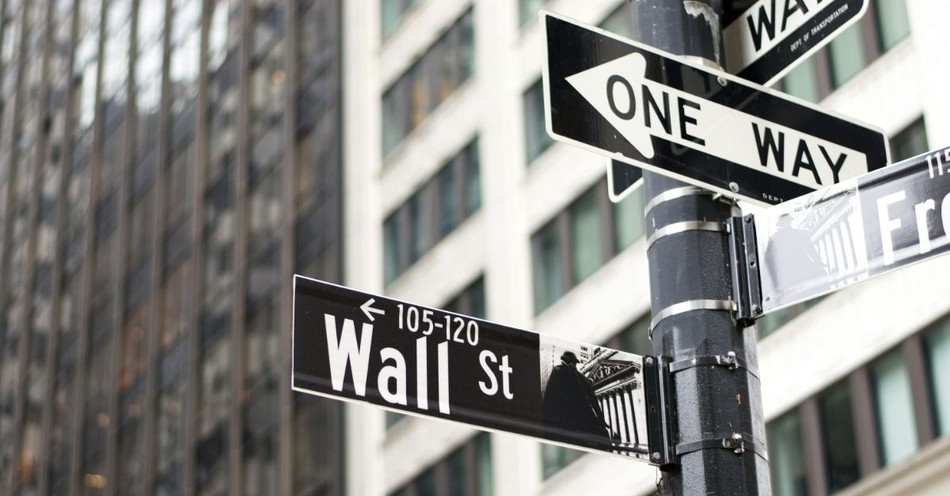If you watch the local or national news, in the bottom corner of the screen, you will see a box highlighting how the markets performed for that day. If the markets are up, the box is green, and if the markets are down, the box is red. Whenever the markets have a great day or a terrible one, it often becomes the lead story. You may see headlines like these. “Great day on Wall Street.” or “Wall Street gets hammered.” These types of headlines feed into your emotions, which are often tied to your investments. By the way, the two biggest emotions investors feel are fear and greed.
When you consider this year, Wall Street is celebrating one of its strongest earnings seasons in years (this is when greed kicks in). Major companies like JPMorgan, General Motors, and Coca-Cola all beat expectations, while the S&P 500 heads for its best performance since 2020. Yet beneath the record profits, challenges remain — layoffs continue, and the national debt has climbed past $38 trillion, its fastest growth since the pandemic. The contrast reveals both the resilience and the fragility of modern wealth.
For those who own stocks, many Americans hold them in their 401(k), and while it is an asset, you must also recognize that it is a volatile asset that fluctuates based on the performance of the markets. Technically speaking, regardless of how the asset performs, you only receive the true value of the stock when you sell it and realize either the gains or losses. While 401(k)’s or IRAs are the primary retirement planning vehicles for most, navigating these is a balance between the risk associated with seeking growth and the safety that comes from trying to preserve that growth. If you don’t take enough risk, then there will not be sufficient growth to sustain your income throughout retirement. If you take too much risk, then your accounts could drop right at the moment you need them in retirement. Such is the dilemma of planning for retirement in the 21st century. Is it any wonder that people experience the roller coaster ride of emotions when they pay attention to the performance of their investments daily?
The Disconnection between Wall Street and Everyday Life
There is a real dichotomy that many are experiencing today. Markets are performing well, yet people are experiencing layoffs, and prices are steadily rising. There is a disconnection between the performance of Wall Street and the daily lives of everyday people. A rising 401(k) balance does not mean you can afford bread, milk, or meat at the local grocery store. This is causing an undue amount of stress and harm for many people in this economy.
For this reason, let’s consider this dichotomy from a perspective of faith and consider where your security and contentment lie. When the markets rise and the world celebrates gain, how can we stay anchored in contentment—remembering that true security isn’t found in numbers or profit, but in the steady provision of a faithful God?
Where Are You Placing Your Trust?
"Some trust in chariots and some in horses, but we trust in the name of the Lord our God." - Psalm 20:7
There is an irony that I see far too often among believers, and honestly, I have experienced it myself. We are more prone to place our trust in the things we see than in the God we don’t see. It is easy to say, I trust God, when the markets are up, the bank account is growing, the business is doing well, or you know how all your bills will be paid and where the money will come from. However, if we are going to be honest, this is not the test of whether we are trusting God. It could be the result, but it is not the test. For many, we trust when we run out of options, but as soon as the options are available again, our trust lingers. We shift from trusting in God, who we cannot see, to the chariots and horses we see. That, my friends, is the deception of wealth. There is nothing wrong with having wealth, but it can hide the truth of where your trust lies.

A Trust Lesson From a Widow
In 1 Kings 17, there is a drought in the land, and Elijah goes to a widow at Zarephath, who had only a handful of flour and a little olive oil. In that moment, she faced a decision of trust because Elijah asked her to make him bread first and believe that the flour and oil would not run out until the drought was over. She trusted in the word of the Lord, and God provided for her. I wonder (I am asking myself this question too) if you would do the same thing in her situation? Your answer (and mine) to this question ultimately reveals where you are placing your trust.
The Market Performance vs. God’s Track Record
The reality of life is that everything is fragile. There is no guarantee that the markets will be up tomorrow. In fact, on the front of every prospectus you receive in the mail (that you never read), it says past performance is no guarantee of future results. That means that the way the markets have performed in the past does not indicate how they will perform in the future. While historically the stock market has had an average annual return of ten percent for the last one hundred years, those years have seen some very wild swings. In the best year, the market gained over 50 percent. In the worst year, it was down almost 42 percent. While this year has been great, we don’t know what next year holds. What we know is that over the long term, the performance of the market has been fairly consistent. You just can’t predict how that will play out in any year.
I want you to contrast that with how God works because it is in direct opposition. With God, we look at his past performance as a marker of what future results will be. How do we know we can trust God today? We go back and look at what he did yesterday. When the Israelites crossed the Jordan River, God parted the river so they could walk across on dry land. Before the waters returned, they grabbed twelve stones, one for each tribe of Israel. These stones would be a memorial to remember what God did for them. This builds and strengthens our faith. We remember what God has done before and trust that he will do it again. This is where our hope and trust should always remain.
The Source of True Contentment
Investing in the market is a viable way of growing your wealth and building your retirement nest egg. It is one tool in your arsenal, and I would never discourage anyone from investing as long as they do it appropriately. This would include identifying your goals, knowing how much time you have to achieve those goals, and taking an appropriate amount of risk. Ultimately, as believers, while we can benefit from the performance of the market, let’s recognize that the market and investing are just a resource. Our ultimate source of trust is God Himself. God is faithful, God is consistent, and God is trustworthy. Best of all, he has promised never to leave you nor forsake you. While the markets may be up this year, that is a good thing. Just know that markets go up and down, so don’t be surprised when they do.
However, despite what happens in the market, up or down, our God remains constant. So I encourage you to rejoice in all circumstances. If your accounts are up, praise God. If they are down, praise God, too. Your peace and contentment don’t come from whether the box on your television is red or green. It comes from the God who remains the same regardless of what is happening in the markets. I will leave you with the words of Pau, which sum this up beautifully.
"I know what it is to be in need, and I know what it is to have plenty. I have learned the secret of being content in any and every situation, whether well fed or hungry, whether living in plenty or in want. I can do all this through him who gives me strength." - Philippians 4:12-13
Photo Credit: ©Unsplash/Chenyu Guan

He is the author of The Pursuit of Purpose, which helps readers understand how God leads them into his will, and the author of The Pursuit of Victory: How To Conquer Your Greatest Challenges and Win In Your Christian Life. Clarence is also committed to helping 10,000 people learn how to study the Bible and has released his first course, Bible Study Basics, to achieve that goal. To learn more about his ministry and resources, please visit clarencehaynes.com.




